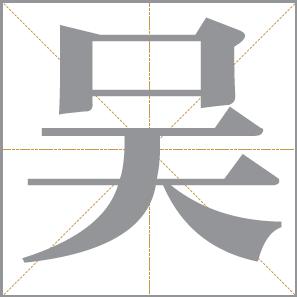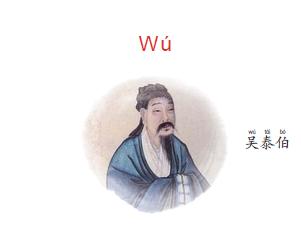Among thousands of surnames in China, Wu (吳) is especially related to Wuxi. Wu dates back over 3,000 years.
In the 12th century B.C.,Tai Bo and Ji Chang, sons of the leader of a tribe called "Zhou" in the area of Shaanxi, moved to Meili ( the area of today's Meicun village, in east Wuxi ) to avoid fighting against their bigger brother for the throne.
At that time, Meili was still wild and savage. Only some uncivilized natives lived there. Tai Bo and Zhong Yong taught them advanced farming and silkworm mulberry technology, which became the foundation of the construction of Jiangnan. Their leadership received locals' respect and support and finally turned into a big nationality called "Gou Wu". Confucius even considered Tai Bo a figure of the highest virtue.
At the time when the state Wu was officially founded, it was popular to take a national name as a surname. Therefore, Wu is the most indigenous surname in Wuxi. Nowadays, some locals joke that only residents whose surname is Wu are real natives.
 |
|
The character Wu (吳) |
 |
|
Tai Bo, the founder of the Wu nation. |
For a scholar focusing on Australia's public diplomacy, working as a recreational manager in China may never be part of his career path. But Bradley McConachie does have lots to say now about his special experience at a resort in the picturesque tropical coastal city of Sanya in South China's Hainan province.

One of the potentially most traumatic things a girl has to go through is finding a new hairdresser.